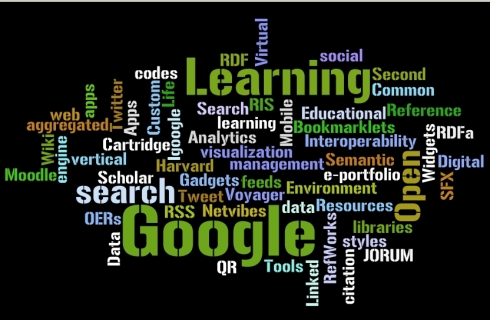I’ve just realised that I’ve been working in the HE library sector for just over a year now. In line with trying to be more reflective it seemed a good time to put together a blog post to think about some of the differences and similarities between HE libraries and the public library sector where I’ve spent much of my working life.
I think the first reflection is that in many ways I’m working in an HE library that is atypical. Most students never visit the library building, print collections are mainly for academics and researchers and resources for students are electronic. So a number of the differences are purely a reflection of that different service model. It’s quite a change from working in a public library building where your users are always present and visible and their preoccupation is still overwhelmingly with your print collection.
Technology is one of the big differences. Ostensibly there are similarities in the systems being used. Both public and academic have library management systems, library catalogues, user PCs, wifi and self-service. But there are a whole layer of systems such as SFX, ezproxy and remote authentication systems that don’t really appear on the radar for public libraries as they don’t have large collections of electronic resources. Public libraries are starting to look at new OPAC systems such as Aquabrowser that include federated search capabilities but HE libraries have been working with federated search for some years and are now moving to aggregated search systems such as Summon.
Many public libraries have started to offer e-books and downloads through services such as Overdrive but their collections are tiny in comparison with the tens of thousands of titles that HE libraries typically have available. Many are reaching the stage where electronic acquisitions are higher than print acquisitions.
There’s another area with library systems where public libraries and HE libraries seem to differ. Developments for library management systems in the HE sector seem much more likely to be developed in house or by taking code available from elsewhere. In public libraries changes are likely to be provided by suppliers or third-parties. So there seems to be more willingness or technical ability to customise OPACs and the LMS.
RSS feeds, XML, moving data out of one system and into another seems much more common in HE libraries. That isn’t to say that there is less innovation in public libraries with library management systems, but it tends to be more focused on management information, management information or implementing third-party innovations.
I was struck at one of the first HE seminars I went to that there’s a very different approach to conference attendance. Almost everyone has their laptop/netbook or other mobile device. They are checking emails, blogging and/or twittering throughout the day in a way that I’d never come across at any public library focused event. That is something that took a bit of time to get used to and find a method that worked for me.
Blogs, wikis and other social networking tools are pretty much ubiquitous and although there is some public library use, in my experience public libraries often find their efforts frustrated by corporate communications departments seeing it as being something that is outside of their control and therefore not allowable.
Reference management, information literacy and information management are all high up the priority list for academic libraries whereas for public libraries it is much more about literacy in its broadest sense and access to services (and not just library services). Although both have education at their heart it is quite interesting to discover quite what that means in practice.
I started finsihing off by writing a list of the different technologies that I’ve learnt something about in the past year and realised that it was a longer list than I’d expected. So rather than a boring list, a slightly less boring wordle 
(although I’ve now realised that I’ve missed Wordle off the list and because of the number of times Google appears on the list (for Apps, Custom Search Engines and suchlike) it makes it appear that I’d never heard of Google!)

